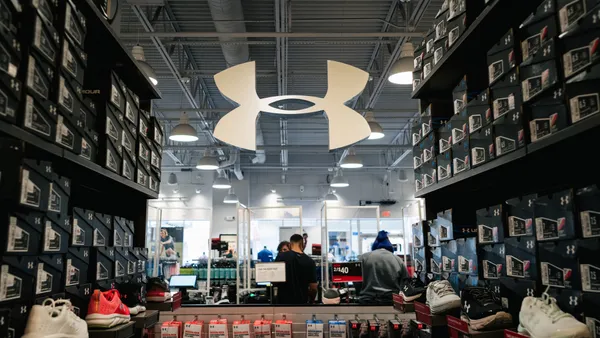Dive Brief:
-
H&M announced on Monday that the company will stop placing orders on conventional cashmere by the end of next year as part of its overarching sustainability efforts, according to a company blog post.
-
Instead, the retailer will "work for a more transparent supply chain" where cashmere can be sourced from places that meet its environmental and animal welfare standards, per the announcement.
-
H&M also revealed that 57% of all materials used by the company are recycled or sustainably sourced, an increase of 35% in just one year. The retailer reiterated its goal to use only recycled or sustainably sourced materials by 2030.
Dive Insight:
H&M is pushing the pause button on conventional cashmere products until it can find more sustainable supply chain operations. If the company is able to identify sources that meet its standards it will, "consider turning to virgin cashmere again."
It’s one step in the retailer’s larger, overarching plan to move toward environmentally friendly practices, culminating in the 2030 goal of using only sustainable materials.
H&M has made moves over the past few years to become a more environmentally responsible company, including becoming part of the Fashion Industry Charter for Climate Action — an effort that is implementing steps to reach net zero emissions by 2050. The company also unveiled a collection that used fabric made from plastic shoreline waste, and recently partnered with Lyft to give free rides to H&M locations in New York so locals could recycle their clothes through its Garment Collecting program.
These sustainability efforts are happening as fast fashion is coming under increased scrutiny for churning out products, including when H&M revealed in a 2018 quarterly report that it was housing over $4 billion in unsold clothing.
Consumers — especially younger ones — are also increasingly concerned with the environmental impact of their purchases. According to a 2017 study by the IBM Institute of Business Value and the National Retail Federation, 55% of Gen Zers are choosing brands that are eco-friendly and socially responsible.














